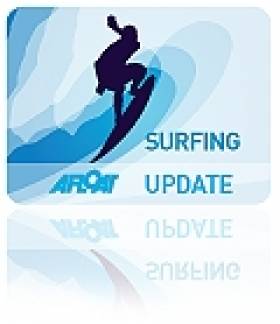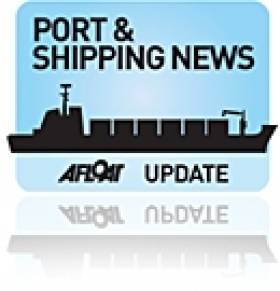Displaying items by tag: interview
Best Ever Surfing Winter for Ferg and Tom
Surfing magazine MagicSeaweed recently caught up with waveriders Fergal Smith and Tom Lowe to get the lowdown on winter surfing on the Emerald Isle.
The pair describe how flat surf after last November's 'big freeze' gave way to a run of big waves from January to March. For UK pro Lowe in particular it was his best ever season - but also one that left him spent.
"The finisher for me was that Mully morning session [off Mullaghmore]," he told MagicSeaweed. "Ferg towed me into the best wave of my life that morning; sounds wet but I was drained emotionally and physically by it."
For 'Ferg' Smith, the highlight was the paddle session at the Pampa wave near Bundoran.
"I grew up surfing Pampa so I know the wave well but I have never surfed it as big and perfect at that," he said.
MagicSeaweed has more insights from Tom and Ferg HERE.
Expansion Is The Only Way Says Dublin Port Chief
Trade at Dublin Port is set to more than double over the next 30 years, according to its chief executive Eamonn O'Reilly.
In an interview with The Irish Times last week, O'Reilly elaborated on the new 'master plan' for the port, which is based on an estimated trade growth to 60 million tonnes (or 2.5% annually) by 2040.
“Last year’s growth [of 6.1%] suggests to me that we need to get our planning caps on and get a solid and robust master plan in place,” said O’Reilly.
The master plan, according to the Dubin Port chief, will require expansion of the existing port by reclaiming up to 40 hectares, as well as a greater integration with bordering areas.
Previous attempts to expand have faced much opposition from conservation groups and local residents for a number of years.
O’Reilly stressed that the local community will be engaged on the issues involved before Dublin Port produces a final proposal at the end of the year.
But he also insisted that "there’s no project [that hee knows of] for port expansion that doesn’t involve reclamation", despite proposals to establish a new port at Bremore.
Read more of the Irish Times interview with Eamonn O'Reilly HERE.































































